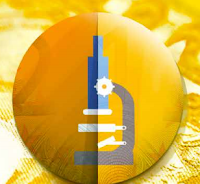Horizon Europe is set to be the EU’s biggest ever research and innovation funding programme and is designed for greater impact.
The proposed budget allocation of €100 billion for 2021-2027 includes €97.6 billion under Horizon Europe (€3.5 billion of which will be allocated under the InvestEU Fund) and €2.4 billion for the Euratom Research and Training Programme. The innovation window of InvestEU will allow the use of loans, guarantees, equity and other market-based instruments to mobilise further public and private investment in research and innovation.
The Commission says, and SusChem agrees, that investing in research and innovation is investing in Europe’s future: helping Europe to compete globally while preserving the region’s unique social model. It improves the daily lives of millions of European and global citizens and helps to solve some of our biggest societal challenges.
Horizon Europe aims to strengthen EU science and technology through increased investment in highly skilled people and cutting-edge research. It will foster the EU’s industrial competitiveness and its innovation performance, notably supporting market-creating innovation via the new European Innovation Council (EIC) and the European Institute of Innovation and Technology (EIT). And it will deliver on the EU’s strategic priorities, such as the Paris Agreement on climate change, and tackle global challenges that affect the quality of our daily lives.
What’s new?
There are several new elements in Horizon Europe. There will be increased support for breakthrough innovation through the EIC funding, mission-orientated research and innovation will deliver more and faster impact from project results and openness will be reinforced – an open science approach will be the norm. The programme will review and shape a new generation of European Partnerships in research and innovation and also look to simplify the rules for participation to reduce the administrative burden.
The structure of Horizon Europe will be based around three ‘pillars’: Open Science, Global Challenges and Industrial Competitiveness and Open Innovation.
The Open Science pillar, with €25.8 billion funding proposed, supports frontier research projects defined and driven by researchers themselves through the European Research Council (ERC) which will receive funding of €16.6 billion, funds fellowships and exchanges for researchers through Marie Skłodowska-Curie Actions.
The Global Challenges and Industrial Competitiveness pillar with funding of €52.7 billion directly supports research relating to societal challenges, reinforces technological and industrial capacities, and sets EU-wide missions with ambitious goals tackling some of our biggest problems.
The Open Innovation pillar with €13.5 billion funding aims to make Europe a front runner
Sustainable Chemistry ready to respond
The European Chemical Industry Council (Cefic) reacted positively to the Horizon Europe announcement commending the level of ambition and commitment for Research & Innovation in the European Commission’s proposal and applauding the anticipated budget allocation for 2021-2027.
Marco Mensink, Cefic Director General said: “When the EU unravels the next financial framework, the Horizon Europe proposal should remain untouched, or even be increased in size. Sharing innovation efforts is one of the true values of Europe. We call upon member states and European Parliament to reflect this in the final negotiations and decisions.”
Cefic praised the European Commission for clearly recognising the innovative and enabling role of the industry by placing the pillar of the Global Challenges & Industrial Competitiveness at the heart of the Horizon Europe programme. The Commission’s ambition of making Europe an unparalleled global innovation hub is essential for global competitiveness.
The chemical industry also welcomed the Digital technologies and Industry cluster in Horizon Europe. A structural combination with industrial processes, materials development and new business model creation is key for investment and growth of the European chemical industry. SusChem will be well placed to contribute to this area (see below).
SusChem and KETs
Cross-disciplinary and cross-sectoral partnerships through open innovation are essential in the new R&D programme to align the entire innovation ecosystem, including start-ups, and to bring innovation faster to market. This reflects the current approach of the SusChem innovation ecosystem.
In preparation for Horizon Europe, SusChem outlined its position on what can be achieved by Key Enabling Technologies (KETs). In a White paper on KETs and Horizon Europe published earlier this year the technology platform outlined the major technology developments and initiatives needed to:
- create Advanced Materials for use in energy efficiency (e.g., light weight), renewable electricity production and energy storage (e.g., batteries elements), or smart functionalities responding to stimuli (e.g., self-repair),
- develop Advanced Process Technologies, including Industrial Biotechnology, for more sustainable production including through utilisation of alternative carbon feedstock (waste, biomass, CO2) and alternative energy sources, and
- leverage Digital Technologies for use in advanced process control and materials modelling, to enable disruptive business models and to create new customer experiences.
You can read the full paper here.
Innovation in these areas is essential for the EU to grow a low carbon, circular and digital economy and to continue generating jobs and attracting investments and will be at the heart of the Horizon Europe programme in the Digital technologies and Industry cluster and other areas.
Help shape the SusChem contribution in these three areas at our Annual Stakeholder event in Brussels on 20 June and celebrate a fruitful future in Horizon Europe!
The European Commission press release announcing the Horizon Europe structure is available here and a detailed annex giving much more information on the proposal is available here.



No comments:
Post a Comment
Please post your comment here. Please note that this newsblog is not moderated.
Note: only a member of this blog may post a comment.